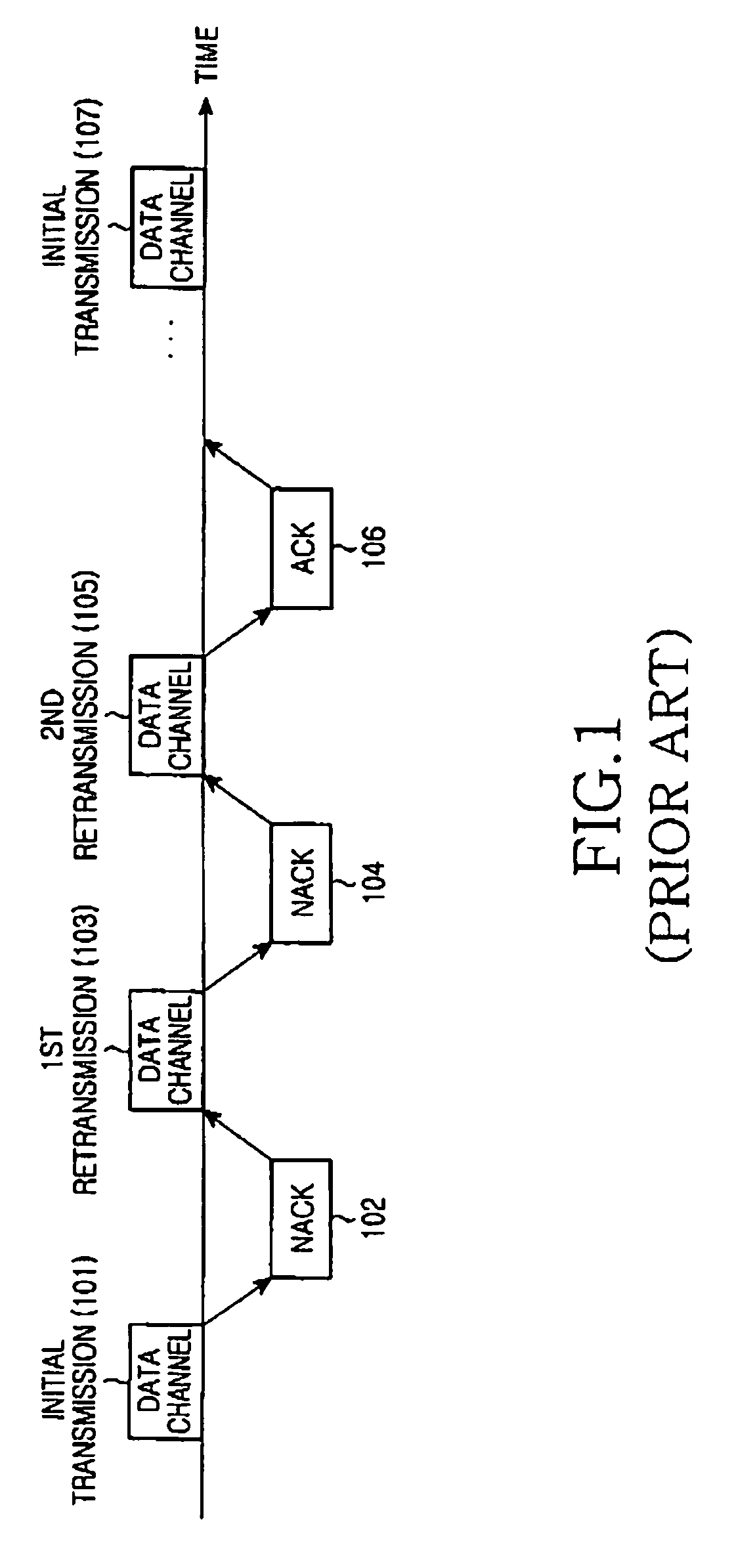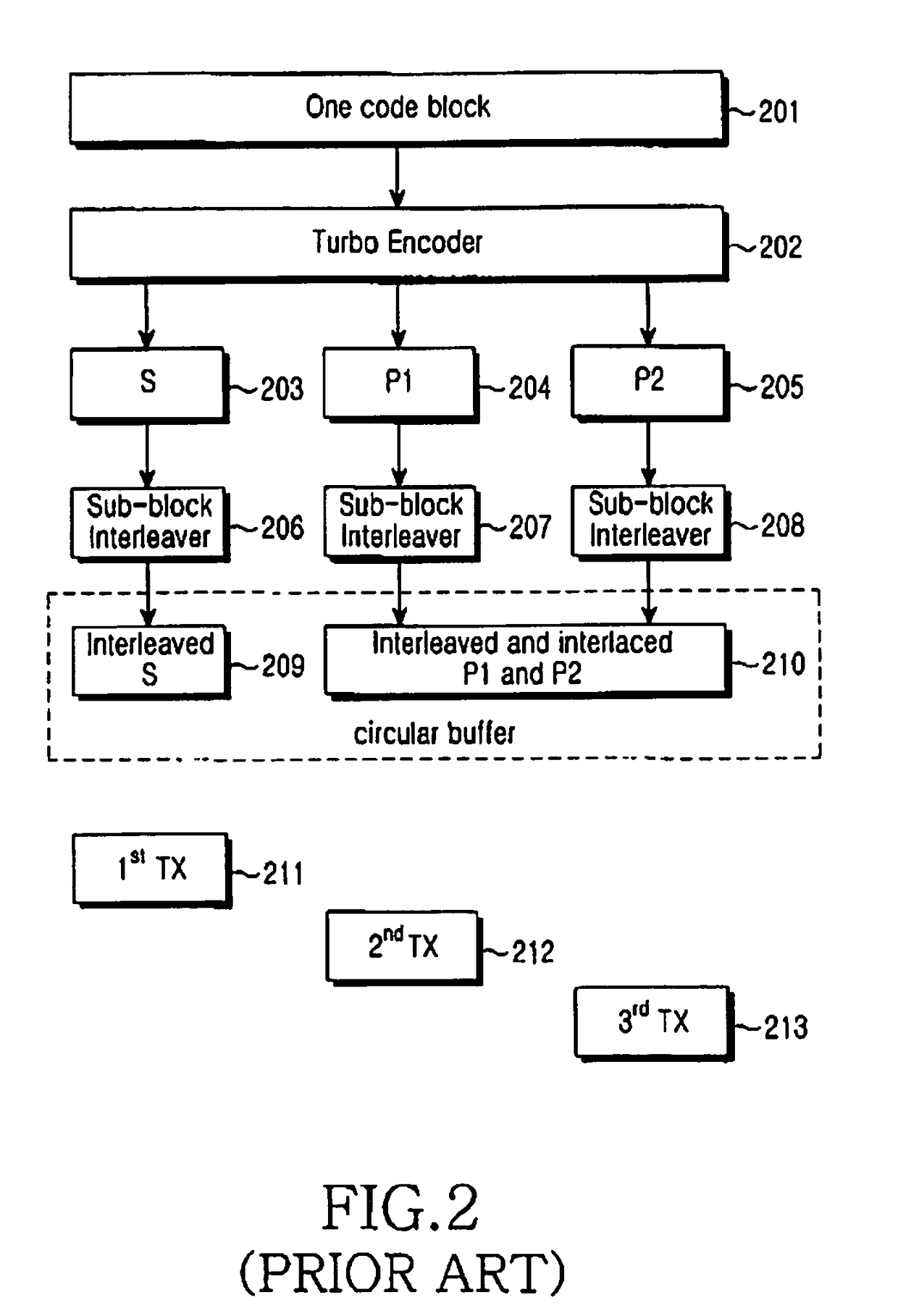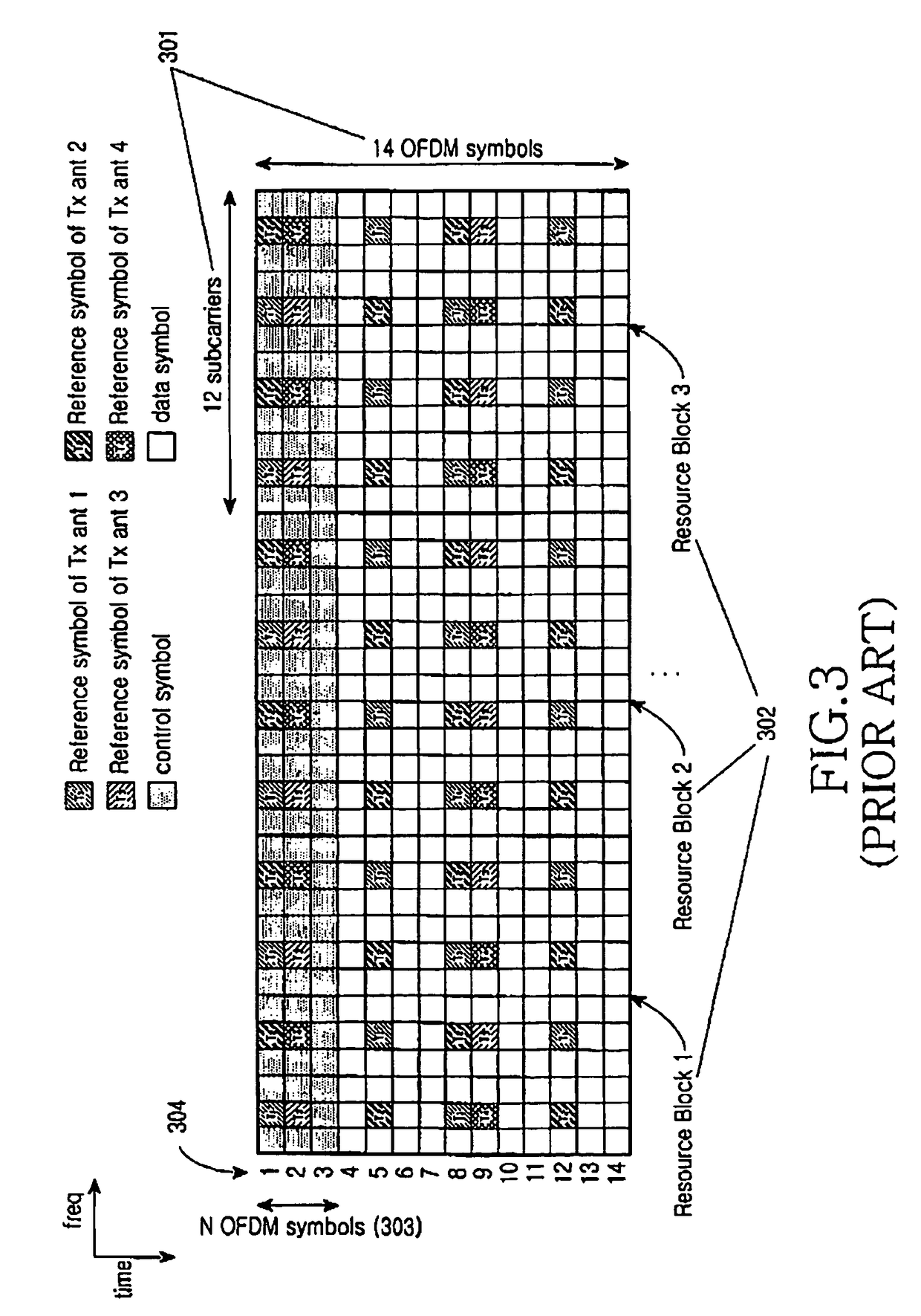Apparatus and method for mapping symbols to resources in a mobile communication system
a mobile communication system and apparatus technology, applied in the field of apparatus and method for mapping symbols of modulation symbols of harq subpackets to resources, can solve the problem that the demodulation of transmitted data packets is almost impossibl
- Summary
- Abstract
- Description
- Claims
- Application Information
AI Technical Summary
Benefits of technology
Problems solved by technology
Method used
Image
Examples
first embodiment
[0069]A first embodiment starts mapping the coded data symbols from the resources in the opposite side of the resources available by control channels as illustrated by reference numeral 407.
second embodiment
[0070]A second embodiment performs mapping on the coded data symbols from the next position of the maximum available resources 403 available for control channels as illustrated by reference numeral 408, and then maps the coded data symbols to the resources actually unused for control channel transmission in the corresponding subframe among the maximum available resources 403 as illustrated by reference numeral 409. As illustrated in FIG. 4, the mapping order for the resources denoted by reference numeral 409 is possible for both directions.
[0071]According to the foregoing mapping method of the present invention, the position of resources to which coded symbols of each subpacket illustrated in FIG. 2 are mapped in a resource block can maximally reduce the influence on the change in position of the resources 405 actually used for control channels in the resource block. More specifically, because the coded data symbols undergo mapping beginning from the next to the maximum available re...
fourth embodiment
[0102]FIG. 13 is a flowchart illustrating a method for generating subpackets in a communication system according to the present invention. Referring to FIG. 13, in step 1301, a transmitter and a receiver determine a reference value, or ‘L’ value, based on which data subpackets are generated, among the total number T of REs available in the allocated resource block(s) (L≦T). For example, in downlink communication, because the transmitter serves as a base station and the receiver serves as a terminal, all terminals in one base station may have the same ‘L’ value, or every terminal may have a different ‘L’ value. When all terminals have the same ‘L’ value, the ‘L’ value can be defined such that the terminals always have only the fixed ‘L’ value, or the ‘L’ value can be varied through broadcast signaling of system information. However, when every terminal has a different ‘L’ value, the ‘L’ value can be determined through predetermined signaling for each terminal. Alternatively, a ‘Defau...
PUM
 Login to View More
Login to View More Abstract
Description
Claims
Application Information
 Login to View More
Login to View More - R&D
- Intellectual Property
- Life Sciences
- Materials
- Tech Scout
- Unparalleled Data Quality
- Higher Quality Content
- 60% Fewer Hallucinations
Browse by: Latest US Patents, China's latest patents, Technical Efficacy Thesaurus, Application Domain, Technology Topic, Popular Technical Reports.
© 2025 PatSnap. All rights reserved.Legal|Privacy policy|Modern Slavery Act Transparency Statement|Sitemap|About US| Contact US: help@patsnap.com



